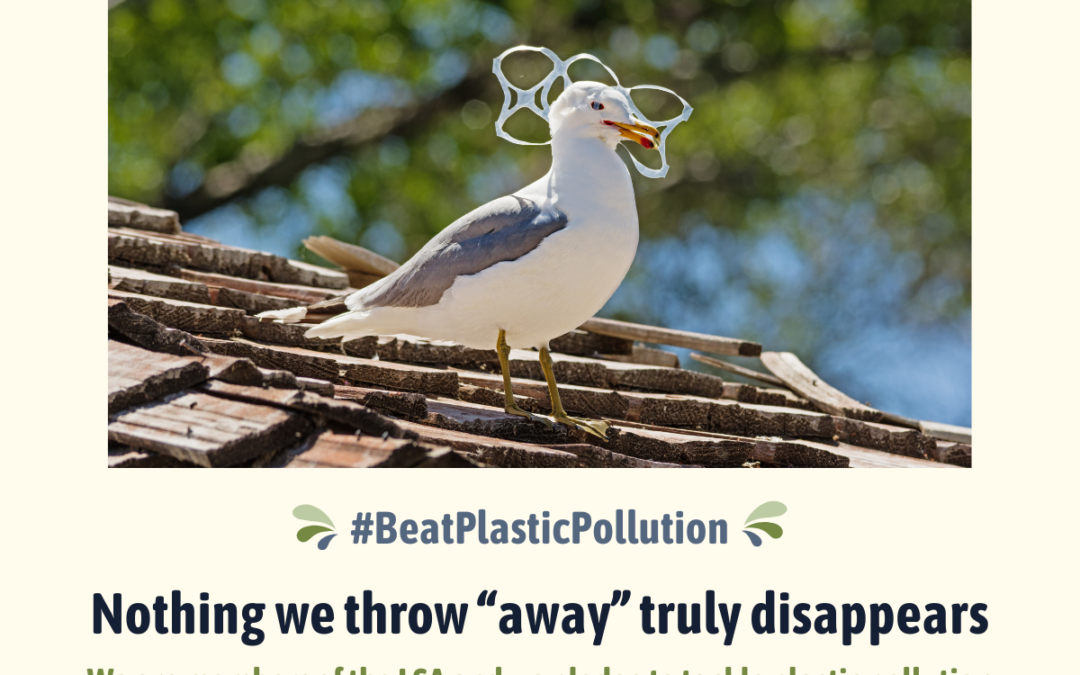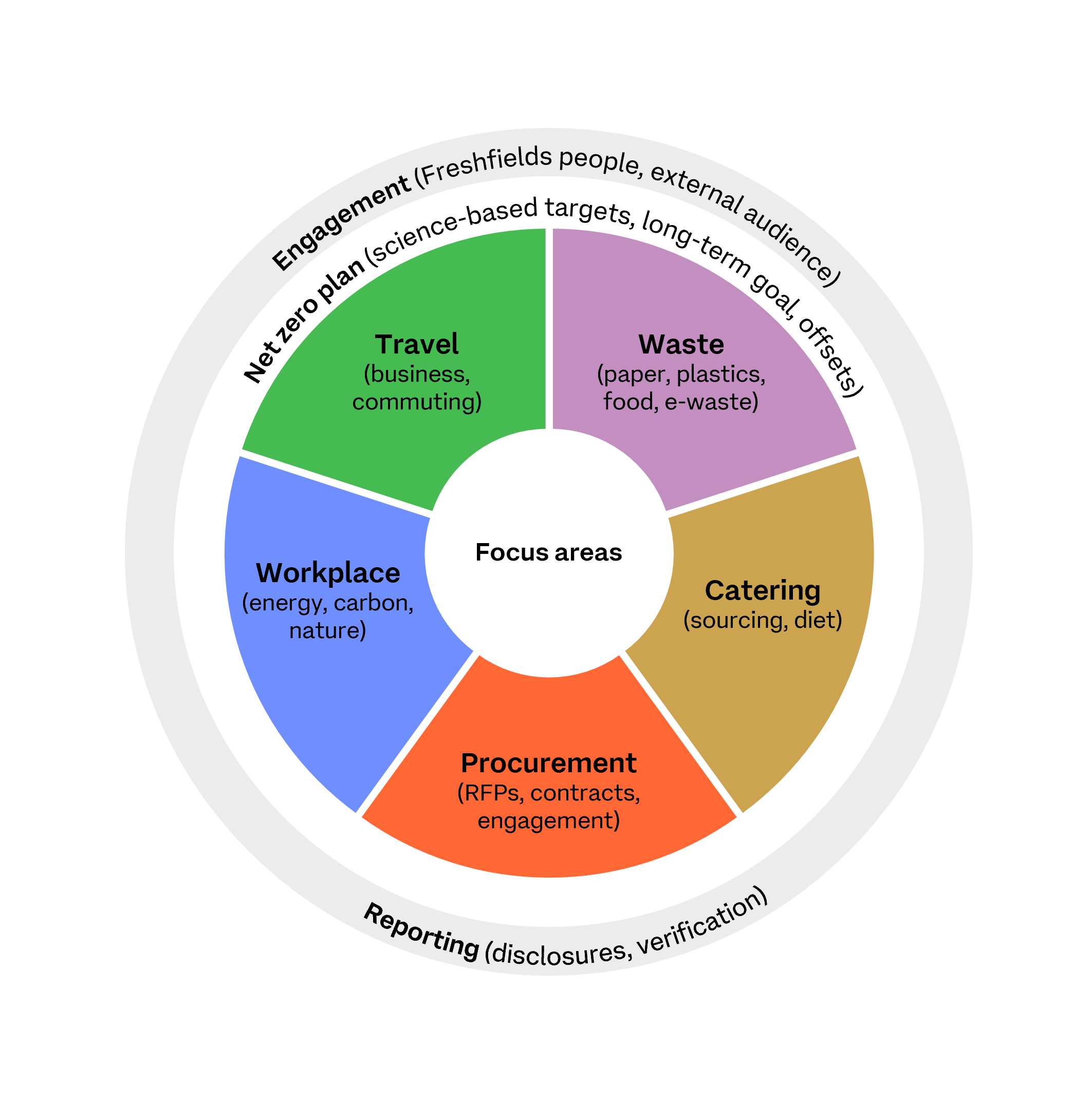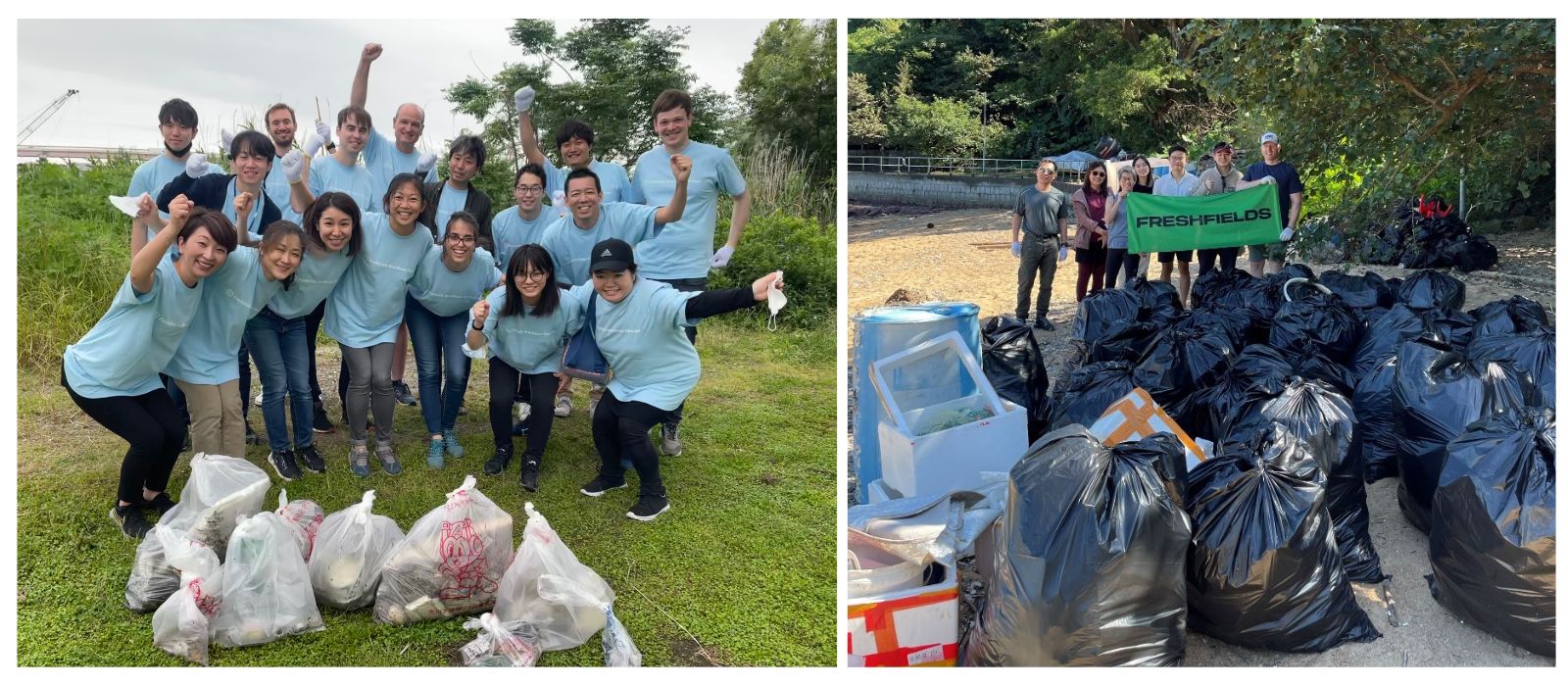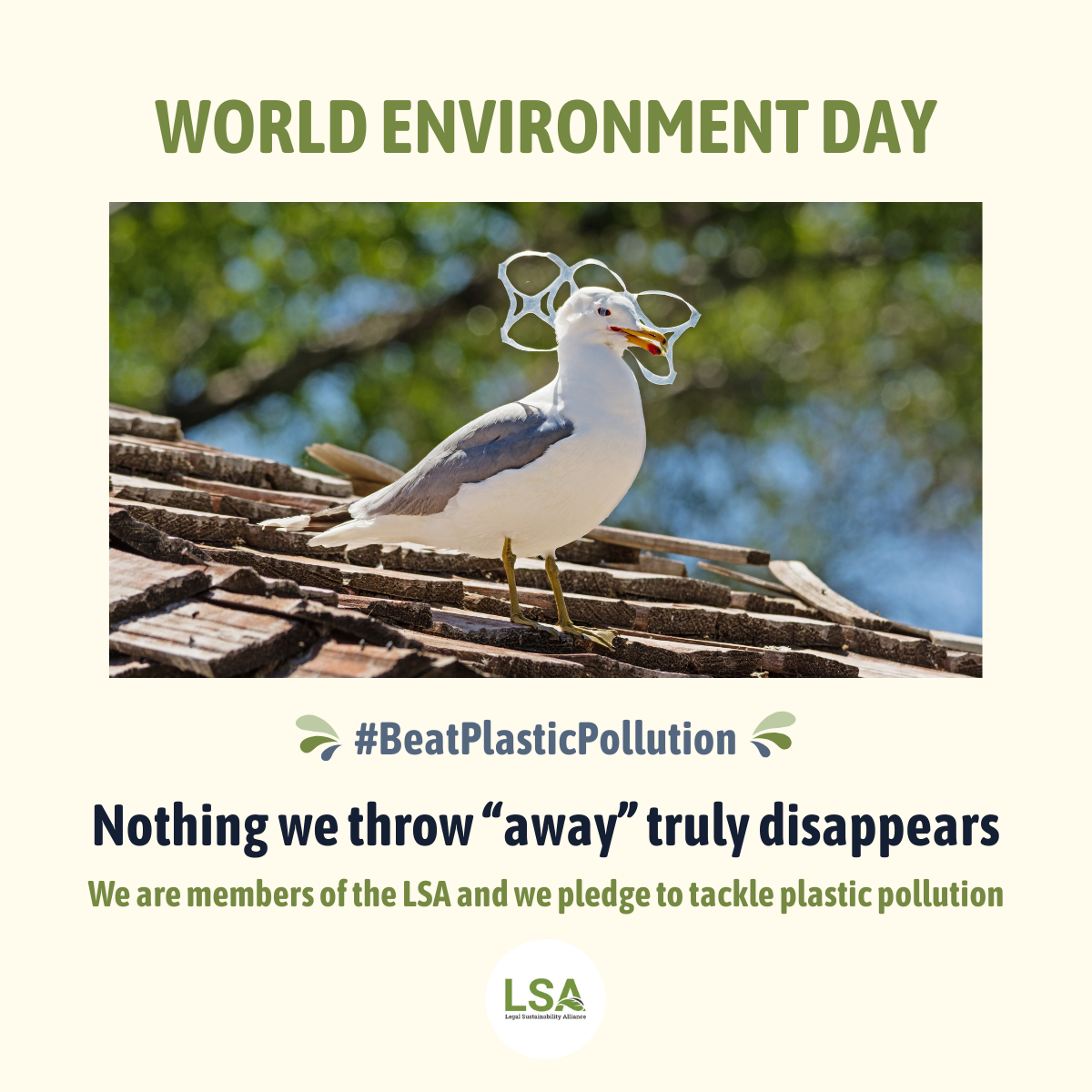by Beth Salt | May 19, 2025 | General Editorial

Why CSRD still matters in the face of Omnibus turmoil
An event for London Climate Action Week
Date: 26 June 2025, 11am – 1.30pm
Location: Radley Yeldar, 24 Charlotte Road, London, EC2A 3PB
This is an exclusive in-person event for LSA members only.
As the Omnibus threatens to pause progress, we explore how to keep eyes on the transformation prize. The Omnibus has dominated the discourse, threatening to pause progress and causing widespread uncertainty. But in the face of extreme weather events, raging wildfires and widespread human rights abuses, ‘stopping the clock’ is not an option. Amidst increasing adversity and political tensions, we must ask ourselves: what is driving us, the regulation or the need for transformation?
We will explore the power of collective action and cross-functional expertise to drive transformational change in line with the original intent outlined within CSRD: business transformation towards a more sustainable economy.
Places are limited. Please email Camilla on manager@legalsustainabilityalliance.com to express an interest.
by Beth Salt | May 12, 2025 | Members News
Mills & Reeve announces significant investment in a long-term biodiversity partnership with Small Woods Association

Modern woodlands face numerous challenges, many of which have been introduced through human activity, including diseases, like ash dieback, and pests like deer. When managed, woodlands are vital to thriving local economies, wildlife, and the wellbeing of surrounding communities, as well as hugely valuable in the fight against climate change.
Small Woods is a charity funded through its membership, grants and corporate support, like that of Mills & Reeve’s. It is dedicated to promoting wildlife conservation in sites such as Edge Wood which is rich with ash, oak and hazel and hosts a variety of flora and fauna. At Edge Wood, biodiversity is enhanced through a traditional management technique known as coppicing, historically practiced on the site for hundreds of years. By cutting the hazel in cycles, a diverse suite of species associated with these woodlands is supported.
The impact of their work extends beyond environmental benefits, providing new opportunities for people in the community. Programmes like “Build a Bench”, a fully funded 12-week initiative offering weekly green wood craft sessions, help volunteers learn basic skills which are at risk of being lost, increases community activity and boosts wellbeing.
Watch project video.
Mills & Reeve’s support will further help to develop these woodlands. Their investment will help to fund a social forestry coordinator and cover transportation costs for participants to project sites, fencing around selected areas to protect plants from deer browsing, materials for a shelter and welfare facilities for volunteers, as well as providing tools and PPE where needed.
Jessica Wilkes-Ball, head of sustainability and net zero at Mills & Reeve, commented: “The impact of Small Woods’ work is evident. Our investment will help to expand these efforts, and underscores Mills & Reeve’s commitment to preserving biodiversity and supporting local communities. This is a project that not only gives back to the land but gives back to the people. We’re hearing stories about the impact that Small Woods is having, and we’re happy to be able to continue their work through this investment.”
Simon James, CEO of Small Woods Association, added: “This partnership with Mills & Reeve is a significant step forward in our mission to preserve and enhance the biodiversity of our woodlands. By combining our expertise in woodland management with Mills & Reeve’s commitment to sustainability, we can ensure that these vital ecosystems continue to thrive for generations to come. Together, we’re not only protecting the environment but also enriching the lives of the communities connected to these woodlands. This collaboration is a testament to the power of long-term, dedicated investment in nature’s recovery.”
About
This initiative is part of Mills & Reeve’s Achieving more for nature’s recovery programme, which aims to support Small Woods’ biodiversity activities and preserve woodlands for future generations.
This investment will fund:
- A social forestry co-ordinator for three days per week
- Materials for a shelter and composting toilet to be used by the volunteers
- Tools and PPE where needed
- Transportation costs for participants on project sites
- Fencing to keep out invasive species such as deer
- Bird and dormice boxes and refreshments

by Beth Salt | May 6, 2025 | LSA Insights
World Environment Day 2025
In 2025, the focus of World Environment Day is on ending global plastic pollution. This year, it falls exactly two months before countries meet to continue negotiating a global treaty to end this pervasive problem.
Individual actions truly matter, but when we collaborate with colleagues to drive systemic change in our workplaces and across our supply chains, our impact is supercharged. By choosing to work with businesses that prioritise sustainability, we can help shift the entire sector towards smarter, plastic-free practices.
To mark World Environment Day we are urging LSA members to take the following pledge by downloading these graphics and sharing them on your social media channels, or by creating your own version using this copy.
Please tag us in your posts so we can amplify the message. Download images are high res, please feel free to co-brand and resize as appropriate.
The pledge:
We commit to tackling plastic pollution, by reducing our plastic footprint and supporting businesses who minimise theirs.
Find out more about World Environment Day here.
Graphics for Social Media:

by Beth Salt | Mar 31, 2025 | LSA Insights
Embedding Environmental Training in Law Firms – the Freshfields story
Law firms put environmental policies in place to help them measure and reduce their emissions – but why use valuable time and resources training staff about them?
We asked Mikey Bloxham, Environment Manager at Freshfields, which is directing its colleagues to undertake a mandatory education module on environmental topics.
Over 2025, the firm will roll out a global training module that is compulsory for all staff, partners and new joiners. This will be followed by a requirement to annually update knowledge.
“We understand the need to keep colleagues informed of work we are doing across the environment function for a number of reasons. Firstly, we want to help everyone understand why they are being asked to commit to practices that will reduce our emissions – for example, adopting to paperless working, adhering to the firm’s smart travel policy, turning their computer off at the end of the day, and correctly segregating any waste, amongst other things. We were also keen to keep colleagues up to speed with our climate action (offsetting) initiative and how we ensure that the project maintains integrity. Informed people are more likely to engage and take action. Lastly but also incredibly important, our lawyers now have these great talking points with clients.
“This is not only about existing employees, many of our new joiners, work experience students and scholarship candidates are asking us what we are doing in the environmental sustainability space. This is an important topic for people.”

The firm has set itself a number of targets to achieve, including a 35% reduction in business travel-related emissions by 2027, and 100% renewable electricity supply to all offices by 2030, with these and other targets validated by SBTi. The environment team at Freshfields feel that education about the ‘why’ and ‘how’ of these targets will help galvanise employees and ensure their success.
Securing buy-in from senior leadership, including all regional COOs, has been crucial to the success of this upskilling, as was the need to create a standard module that functions internationally. This was a decision which inevitably presented challenges, with climate policies impacting regions in different ways. For instance, restrictions on business travel have a markedly different effect on Freshfields offices in Asia, compared to those in the UK. However, as collaboration is a cornerstone of effective climate action, Freshfields recognized the importance of adopting a unified, firmwide approach.
Education remains our most powerful tool, and engaging, empowering and informing colleagues and clients on how and why to take climate action will be a vital ingredient in the legal sector’s transition to net zero. If you are interested in finding out more about Freshfield’s training module then please get in touch here, the firm are happy to share the details of their experience in setting this initiative up. The LSA can organise an event/webinar to explore this area further if there is interest, please let us know.

Freshfields teams perform a river clean up in Tokyo and a beach clean up in Hong Kong, steered by the global green group.

by Beth Salt | Feb 24, 2025 | LSA Insights
Empowering Action – How to start an environment and sustainability team in your law firm.
 By Lauren Spencer, Manager at Fragomen.
By Lauren Spencer, Manager at Fragomen.
Before diving into the steps for starting an Environment and Sustainability Team, or ‘green team’, it’s important to define what a green team is.
At Fragomen, our green team began in our UK office when a group of employees passionate about sustainability came together to explore ways to make our office more eco-friendly. That’s exactly what a green team is – a group of like-minded employees working towards a shared goal of creating a more sustainable workplace.
So, how can you start a green team in your organisation?
- Find interested team members
Start by gathering colleagues who share an interest in sustainability. Spread the word in a way that suits your workplace – send out an email, post on internal communication channels or even put up a poster (just remember to recycle it afterwards!).

If initial responses are low, you may need to take a more active approach. Speak with colleagues, bring it up in team meetings or ask managers to nominate a representative from their department. Having a diverse team with members from different areas of the company is key to making a greater impact.
Key departments to involve:
- Office Services and Facilities: They can drive change by choosing eco-friendly suppliers and improving energy efficiency
- Finance: Sustainability efforts often involve budget considerations, and having finance onboard can help secure funding for green initiatives
A well-rounded team ensures that sustainability becomes a company-wide initiative rather than a niche interest.
- Start Small
Once the team is in place, use your first meeting to brainstorm quick, achievable wins. What small changes require minimal cost and effort?
At Fragomen, our first steps involved reviewing office consumables and making eco-friendly swaps. We switched to eco-friendly toilet paper, eco-friendly cleaning supplies, ethical tea and coffee brands, recycled printer paper, and greener stationery suppliers. Once this conversation starts, you’ll find endless opportunities for improvement.

Starting with small, visible changes build momentum. When employees see the results-such as greener products in the office- it creates excitement and encourages wider engagement.
To maintain momentum, schedule regular meetings (monthly or bimonthly) and set a structured agenda. This keeps your team focused and ensures meaningful progress towards sustainability goals.
- Educate and Engage Employees
A green team’s impact grows when the wider workforce gets involved. The more employees connect with sustainability efforts, the more likely they are to adopt eco-friendly habits in their daily lives.
Interactive events and hands-on activities are among the best ways to engage colleagues.
At Fragomen, we hosted:
- Workshops on eco-friendly Christmas decorations: Teaching employees how to create sustainable Christmas decorations using recycled materials
- Clothes swap shops: Encouraging staff to refresh their wardrobe sustainably by swapping clothes instead of buying new ones
- Halloween costume swaps for colleagues’ children: Helping parents reduce waste and save money by exchanging pre-loved costumes
- Volunteering days – Giving employees opportunities to support community gardens and local woodlands
- Plants in the office: Bringing greenery into the office and promoting plant-based well-being
- Seasonal events: Consider running themed events or monthly challenges to keep employees engaged year-round. Whether it’s a ‘Plastic Free July’ challenge or a lunchtime sustainability talk, small efforts help foster an eco-friendly culture
- Engage Senior Leadership
Securing senior leadership involvement is crucial for a green team to gain traction. Leadership advocates ensure sustainability initiatives are taken seriously and integrated into broader company goals. Without top-down support, green teams often struggle to gain momentum, as great ideas risk being overlooked or deprioritised. Engaging leadership early helps teams drive meaningful change with the backing needed to turn ideas into action.
- Measure Success and Keep Growing
Track progress by setting measurable goals and celebrating achievements. Recognising success keeps motivation high and encourages long-term commitment from employees.

The Road to Green Teams
Starting a green team is a powerful way to make a difference in your workplace. With the right support, a clear vision and a team of passionate individuals, you can drive meaningful change and create a more sustainable work environment.
Fragomen is a global immigration firm with nearly 6,000 professionals and support staff across more than 60 offices worldwide.












 By Lauren Spencer, Manager at Fragomen.
By Lauren Spencer, Manager at Fragomen.

